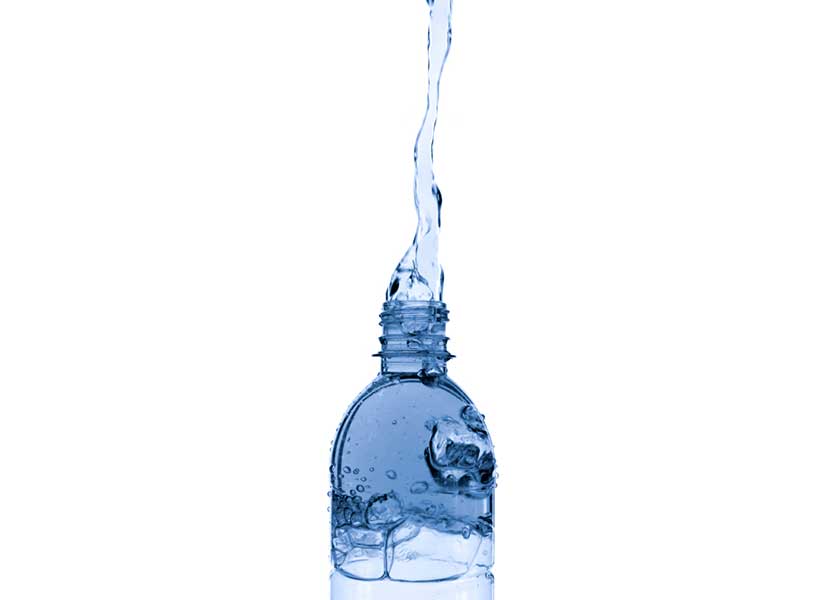Water is an essential nutrient of life. Adequate hydration is the key to short and long term healthy wellbeing and is needed for almost every bodily function.
Even mild dehydration adversely affects both mental and physical performance: just 2% dehydration can cause a 20% reduction in performance in physical and cognitive activities.
What is water used for in the body?
Keeping one’s body hydrated is essential, particularly when working in varied conditions and when you need to concentrate for long periods of time. Drinking little and often throughout the day can help us stay on track and keep us alert.
Our bodies lose approximately 2.5 litres of water each day just by breathing, sweating and going to the toilet. Consequently, if we don’t pay proper attention to topping up our water intake, it’s easy to become dehydrated.
5 signs of dehydration:
- Drowsiness.
- Headaches.
- Dry skin, eyes and lips.
- Lack of concentration.
- Irritability.
At work, we are always looking for ways to perform better and more efficiently. Yet, in a world where many of us are constantly trying to juggle a hectic work schedule, thirst signals are often ignored and such common signals of dehydration (e.g. fatigue, lack of focus or concentration, headaches, sleepiness and infrequent bathroom breaks) may be overlooked.
If you become even mildly dehydrated, it can directly affect your ability to perform at your best. The evidence linking mild dehydration with a range of chronic illnesses is growing. Routine dehydration, even if mild, can have potentially harmful and even fatal consequences.
Gallstones, kidney stones, constipation, asthma attacks, urinary tract infections, a range of cancers plus the likelihood of suffering heart attacks, are just some of the possible chronic, longer-term effects of persistent mild dehydration.
Top tips
To improve your ability to work in the short term and to boost your long-term health benefits, take care of your hydration needs.
- Carry a water bottle around with and keep refilling it.
- Aim to drink 6-8 glasses of water a day unless you have a medical condition that prevents you from being able to do this.
- Replace coffee, tea and fizzy drinks with water at every opportunity.
- Drink water with coffee.
- Drink a glass of water with every meal.
- If you are in a hot and/or humid environment it is vital that you stay hydrated.
- Keep well hydrated if exercising.
- Have hydrated meetings.
- If you’re thirsty drink water.
If you drink water through the day, by sipping regularly from a bottle, you’ll find that you don’t get as thirsty as often and will be less inclined to want a coffee, tea or fizzy drink (all of which can act as diuretics and make you more dehydrated).
